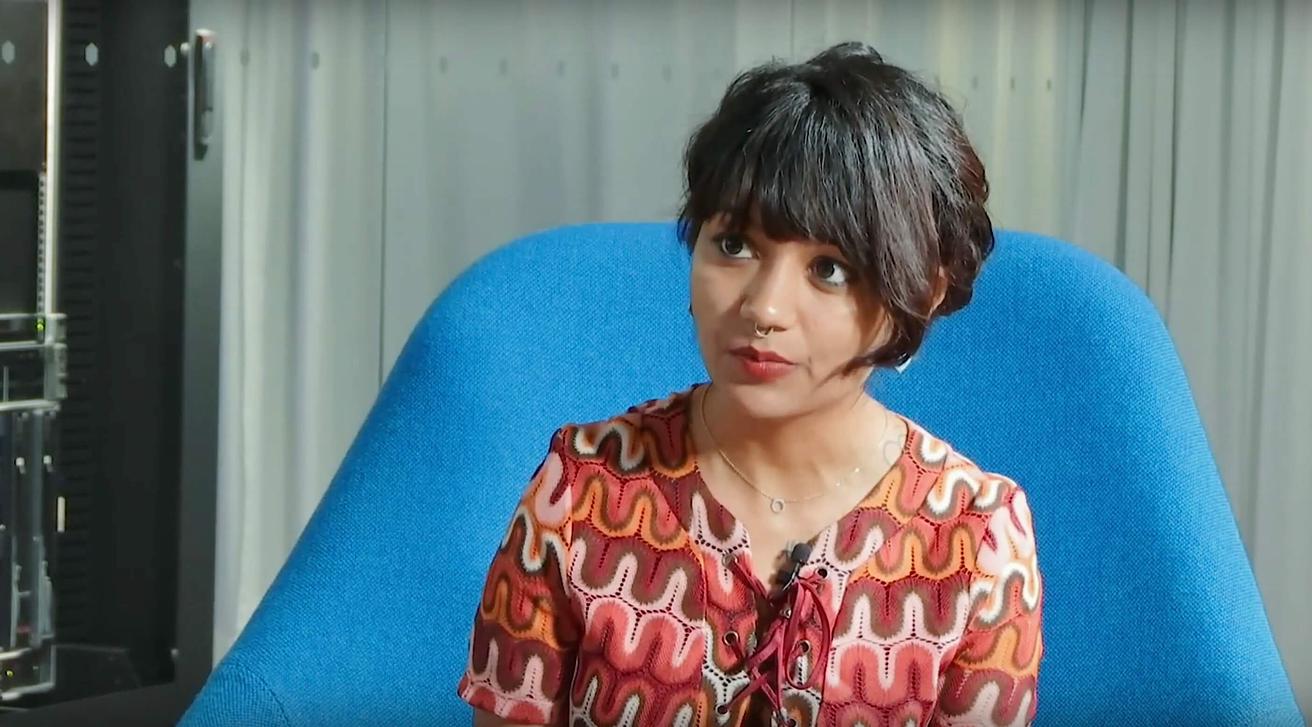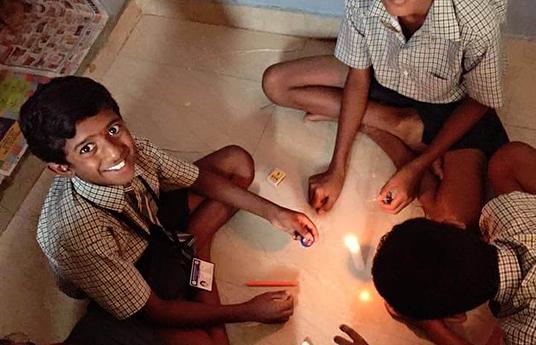Megha Bhagat is a Co-Founder at Project DEFY (Design Education for Yourself), which is a system of learning that believes anyone can teach themselves anything by using the internet and the community around them to find solutions. Their mission is to change the way people think and ignite individual passions so students can believe in their abilities to educate themselves, others and their communities.
How can people work around the traditional education system? - Megha Bhagat | HundrED
The traditional education system is actually based on the concept of there being some type of formal exclusion. If you notice how it works in places where people cannot have access to it because of social-economic constraints, then you realize that somewhere the system was meant to exclude them. It is therefore critical that there are spaces where there are forms of non-structured learning systems that are made available, and the way to do it should focus around really helping them create it within wherever they live. If learning happens naturally and if learning can accelerate with peers around you, then you would not need a system to become a part of. When you help them to create learning spaces where they are by putting in basics of access to knowledge, either through technology that is coming or through people who they are with, how you let them do that at that basic level I think is how people are going to look at getting learnings to themselves. They have to be able to create it within communities where they live if the traditional system is not going to become more inclusive or the system has to make more effort to bring them in. To sum it up: community-led, community-based, and completely peer collaborated low-cost resources, is how communities that don't have access to the systems will have their own learnings.
How does Project DEFY present opportunities to those without an education? - Megha Bhagat | HundrED
DEFY was pretty much created out of the understanding that there are larger sections of society that do not have access to the education system, which is what currently allows you to become or have access to opportunities in life. Especially from the part of the world where we come from, there is already enough data that proves that people who are below the poverty line, those who come from marginalized sections, have no access to the education systems that can give them better opportunities, and where they do have access to systems, they are often given access to really bad systems. The idea is, therefore, to say: ‘can we create a system for them that is led by them, that is owned by them and pretty much gives them the same leveling field as everyone else?’ We also need to ask the question: ‘What was the system meant to do? Was the system really meant to provide everybody with an equitable ground to play on or was the system initially created to form these class structures?’ Building community blocks, and going into sections of these societies saying: ‘hey what would you like to build as a learning space?’ that's where DEFY really began. We did so believing that humans are absolutely innovatively creative and learning is just part of our DNA. We took that and asked ourselves what that would look like in the context of low-cost community spaces; that is where DEFY brought in the model of Nooks, which are within communities, owned by the communities, and where the component of knowledge is now freely available to that community.
In most cases, knowledge is out there on the internet, and it is out there with people around you, so we create technology as an enabler and not necessarily as a tool functionality. By powering up a small space within a community with some laptops, an internet connection, and pretty much human curiosity, then allowing people to really figure out what is it that their life goals are instead of determining those from our privileged understanding of a very top-down approach of what they can or cannot accomplish. Nooks have really been able to help these people who would otherwise have absolutely no say in the societal structure they are in, to be able to break that cycle and to think for themselves, bigger dreams than what the system would allow them to have, even if they did have access to that traditional system. Women go from not having access to growing enterprises within a system structure, to now running their own enterprises. School kids who dropped out of the system because it did not allow them to flourish, end up becoming science geeks and really getting curious about what science means for them. It levels the field and I think that is what DEFY has been able to do within communities where it is in: giving people the power of deciding, what, how and why they learn what they learn, and in a sense trying to democratize the equity of education, which is what the traditional system does not necessarily allow for.
Why is learning ‘how to learn’ so important? - Megha Bhagat | HundrED
The message behind project DEFY is that the social, economic, and cultural contexts you come from do not limit you to the bottom of the pyramid choices in life. Your only option isn’t to escape from the environment, instead, sit there and decide for yourself what the options of getting out of that impoverished life are going to be. Creating spaces that allow that thinking is what DEFY really tries to do. The model is not about a bunch of experts coming in and deciding for them what is good for them, what their choices should be, and where they should be heading towards. It is literally just a bunch of people going in and working with them and just helping them to figure it out on their own. The only role that DEFY really plays within those communities is just helping to put together the initial foundation, which is putting together a bunch of technology and figuring out how to source it. Everything after that is self-determined, and that is a very powerful way of getting these communities to think about their space and their position in the society where they are. So how do you get a young girl to think about her life choices beyond what has been determined by her family and by the socio-economic background she comes from? How do you get her to take that choice back in her hand and for her to really think for herself without compartmentalizing their choices or predetermining their choices for them? This is the cycle that DEFY is breaking within communities where we are, and then allowing them to flourish and to really move into life and into society from a place of agency. That is how DEFY is really helping, working with communities to shift the scales towards equity.
To learn more about Project DEFY, visit their Innovation Page

